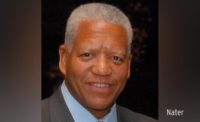Security Talk
First Responders and Mental Health

Travis Howze was a firefighter.
Until one night in June 2007, in Charleston, S.C., when he and his team encountered a furniture warehouse fire. Nine of his firefighter brothers were killed while rescuing a trapped civilian. Due to injuries that he sustained in that same fire, Howze was forced to leave the job that he truly loved.
“After being exposed to countless traumas overs the years, stemming back to childhood and through my time in service, I learned to bury and compartmentalize those events,” he says. That all changed, he said, after that 2007 fire. “I was assigned to the body recovery team that night and my life would never be the same. My life began to spiral out of control and the once happy, outgoing Travis was no longer. I withdrew from everyone and everything. I began drinking to the point of blackout and even put myself into many positions to die by fate. After fate would not take my life, I stuck a gun in my mouth and tried to do it myself, but couldn’t seem to.”
In order to deal with the pain, Howze went back to performing stand-up comedy, which he originally did just for fun before the fire. “It was the only thing that gave me joy and made me feel truly alive,” he says. “The short story is, eventually my issues would cause me to have to leave the job I really loved, which was being a firefighter. The silver lining, though, is that my issues gave me comedy, which in turn, gave me a life I could have never imagined. I was able to move past those dark years and not only turn my life into something positive, but also able to be in a position of helping others once again. My comedy took me all over the world, from headlining overseas tours for the troops to headlining many major comedy clubs and venues across the country. Eventually, I would start performing at Emergency Service Conferences and private events all over, to include the annual FDIC Firefighters Conference in Indianapolis, Ind. which hosts more than 30,000 firefighters and many more.”
Howze is dedicated to helping others. He participates in fundraising efforts for his local animal society and the Firefighter Cancer Network. He also belongs to the Rosecrance Florian Program advisory committee, which assists firefighters and paramedics who deal with alcohol abuse and PTSD.
Currently, he is in the process of publishing his first book, which will be an in-depth autobiography about his life, facing trauma and his PTSD. He decided to write the book, he says, “After many years of burying what I went through. Because in our profession, that’s what we do – we don’t talk about things. I decided enough was enough. The statistics of emergency personnel committing suicide is just as high if not higher than the military, and I know exactly why – because they have no outlet. I decided to write my book in great detail to explain how I was able to move on in life and become productive once again. Many who find themselves in similar situations give up all hope and just end it all.”
Struggles with PTSD are, unfortunately, not uncommon or unique among firefighters, paramedics and other first responders. Depression and PTSD affect an estimated 30 percent of our nation’s first responders – compared to 20 percent of the general population, according to data by the Substance Abuse and Mental Health Association (SAMSA). And while approximately 3.7 percent of Americans have contemplated suicide, that rate jumps to 37 percent for fire and EMS professionals. Further, 0.5 percent of Americans attempt suicide vs. 6.6 percent of fire and EMS professionals.
Some legislatures are increasingly introducing legislation to help first responders, such as a recent bill in the Nebraska legislature, which would require the state to offer reimbursement for counseling for first responders with PTSD. It was introduced by state Sen. Tom Brewer, a combat veteran who was shot six times during a firefight with the Taliban in 2003. Many other states – such as Florida, Kentucky, Washington, Arizona, Vermont, Minnesota, South Carolina – have also introduced or passed legislation to assist first responders with PTSD.
Howze overcame his personal demons. But what about those who are still struggling? Beyond extending workers' compensation benefits, what more can we do to help individuals who put their physical and mental health at risk each day? I’d like to know your thoughts. Please email me at ritcheyd@bnpmedia.com.
Looking for a reprint of this article?
From high-res PDFs to custom plaques, order your copy today!






